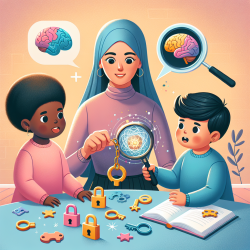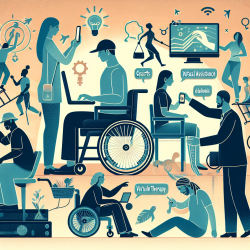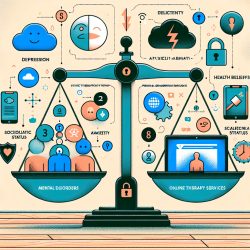In the realm of child health and wellness, one factor often stands out as a pivotal influence: parental health literacy. Recent research has highlighted that parents' ability to understand and utilize health information significantly impacts their children's health behaviors and outcomes. This blog post explores the findings from a comprehensive study on parental health literacy and offers practical steps for practitioners to enhance their skills and support families effectively.
Understanding Parental Health Literacy
Health literacy refers to the ability to access, comprehend, evaluate, and apply health information. For parents, this skill is crucial as it directly affects their children's nutrition, exercise habits, dental care, and overall well-being. The study titled "Parental Health Literacy and Health Knowledge, Behaviours and Outcomes in Children: A Cross-Sectional Survey" conducted in Germany provides valuable insights into this dynamic.
Key Findings from the Research
- Health Literacy Levels: The study revealed that 45.8% of participating parents had problematic or inadequate health literacy.
- Socio-Economic Status (SES): High SES was a significant determinant of better parental health literacy.
- Child Health Behaviors: Children with parents who had high health literacy were more likely to engage in healthier behaviors such as eating more fruits and vegetables, exercising regularly, and maintaining good dental hygiene.
Implications for Practitioners
The findings underscore the importance of addressing parental health literacy as part of comprehensive child health interventions. Here are some strategies practitioners can implement:
1. Educate Parents on Health Literacy
Organize workshops or webinars that focus on improving parents' understanding of health information. Topics can include reading nutrition labels, understanding medical instructions, and evaluating online health resources.
2. Collaborate with Schools
Work with schools to integrate health literacy into the curriculum. This can be achieved through interactive sessions where both parents and children learn about healthy lifestyle choices together.
3. Provide Accessible Resources
Create easy-to-understand materials that explain complex health topics in simple language. These resources should be available in multiple formats (print, digital) and languages to cater to diverse populations.
4. Encourage Community Engagement
Foster community support networks where parents can share experiences and strategies for managing their children's health. Peer support can be a powerful tool in enhancing health literacy.
The Path Forward: Encouraging Further Research
This study opens the door for further exploration into the relationship between parental health literacy and child outcomes. Practitioners are encouraged to engage in ongoing research efforts to refine strategies that address this critical issue.
The journey towards improved child health begins with empowering parents through enhanced health literacy. By adopting these strategies, practitioners can play a vital role in shaping healthier futures for children.










